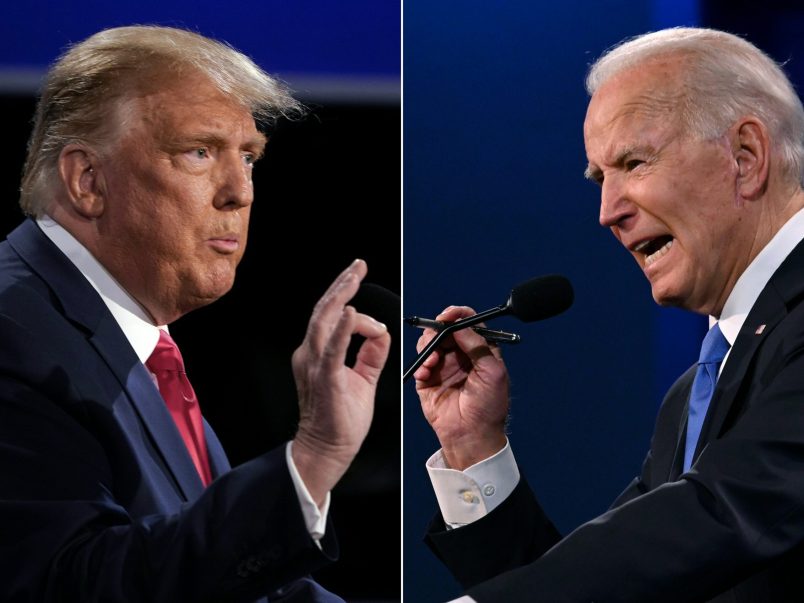Then-President Donald Trump went to his first debate with Democratic challenger Joe Biden in September just three days after testing positive for COVID-19, ex-White House Chief of Staff Mark Meadows writes in his upcoming book, “The Chief’s Chief.”
In a copy of the book obtained by the Guardian, Meadows recalls that then-White House physician Sean Conley called him on September 26 as Trump’s flight to a Pennsylvania rally was taking off to inform the chief of staff that Trump, who seemed to have a “slight cold,” had tested positive for the coronavirus.
When Meadows told Trump about the test results, the then-president responded with something that “rhyme[d] with ‘Oh spit, you’ve gotta be trucking lidding me,'” the ex-White House official quips in his book.
However, Trump got a negative result when the test was repeated with the newer Binax testing kit shortly after Conley’s report, according to Meadows.
Trump took that second test result to mean he had “full permission to press on as if nothing had happened,” Meadows writes. The then-president went to the Pennsylvania rally as planned, and then he held an event with Gold Star families the next day on September 27, where Trump would later claim he might’ve contracted the virus because the families “want to hug me and they want to kiss me.”
Trump also held two press conferences and a White House event in the days after receiving the test results and before his upcoming debate with Biden on September 29, the Guardian notes.
Trump announced on Oct. 2 that he was infected with the virus, three days after the debate. The White House never disclosed the test results he received several days before the debate, and in the wake of Trump’s announcement and subsequent hospitalization on Oct. 2, his medical team repeatedly gave vague and confusing timelines as to when exactly the then-president became sick and when he was aware of his infection.
Conley told the press on Oct. 3 that Trump was “72 hours into the diagnosis,” meaning he would’ve tested positive on Wednesday Sept. 30 — then Conley walked back his statement and claimed he misspoke.
Based on what little information Trump’s medical team did provide, the then-president was definitely symptomatic by Oct. 1.



